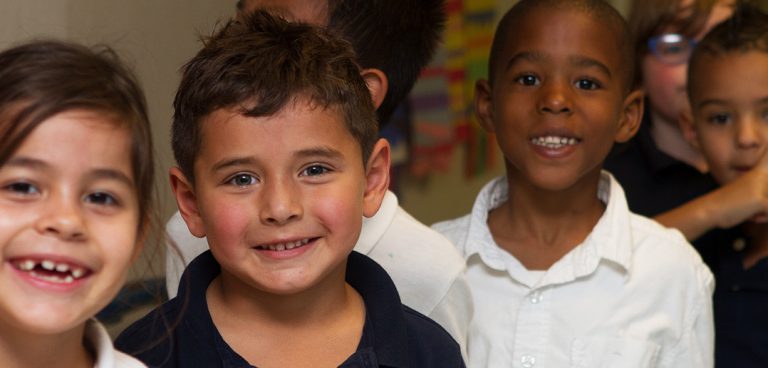As families across Dallas prepare for the first day of school, parents that are sending their little ones off to kindergarten often face an emotional roller coaster—joy, anxiety, excitement, apprehension—and it’s all completely normal, according to multiple Dallas ISD teachers.
The Hub talked with three Dallas ISD teachers to get tips that could help parents and their students transition into “big kid school,” beginning before class even starts.
Before the First Day
Vaccinate: Remember to get your child all the necessary vaccinations for the first day of school. All schools require updated vaccination and health records for every students. You can find a list of required vaccinations on the Immunization Requirements page of the Dallas ISD website.
Visit the campus: Patrice Williams, a kindergarten teacher at J.W. Ray Learning Center, encourages parents to take their children to their new campus before school starts. “A visit to the campus prior to the first day of school can easily erase any preconceptions about the school,” Williams said. Many children think that school is a “big scary place.” Arrange for your child to see their new classroom and meet their teacher, if possible.
Attend Meet the Teacher: “Be sure to attend Meet the Teacher so that you have a beginning of this relationship,” encourages Sue Hansen, a kindergarten teacher at Alex Sanger Elementary. This gives parents a chance to “share any concerns you have about your child and their learning styles, and ask how you help in the classroom,” Hansen said. This is also when you will learn about the teacher’s goals and expectations for the students in their class, as well as the expectations for parents.
First Day of School
Get there early: Make sure to get your child to school at least 15 minutes before class begins. “This eliminates the stress of your child walking into a classroom full of students they’re not familiar with,” said Estella Strong from Maria Moreno Elementary. Being early gives the student time to get acclimated to their space and feel more comfortable in the classroom.
Walk your child to their classroom: Moreno also encourages parents to walk their child into their classroom, giving them the opportunity to see their child in the new setting. That way, when they think about their child throughout the day, they can remember the exact setting.
Throughout the year
Stick to a routine: Williams emphasizes the importance of focusing on your child’s routine, including a healthy diet, exercise and getting plenty of sleep. “Creating a sense of balance is important to the development of optimal performance in early childhood,” Williams said. Setting a bedtime, and sticking to it, has proven especially critical to success in school.
Pay attention to your child’s physical well-being: “Annual physicals, dental exams and vision exams are essential to the physical well-being of any school-aged child,” continued Williams. Also remember to inform the school nurse of any health related issues your child might have, including allergies or medications they take. This ensures that in an emergency, critical information can be accessed quickly, allowing your child to get the best treatment possible.
A great experience in Kindergarten can lay the foundation for lifelong learning. By planning, communicating with your child and their teacher and giving your support, parents can help get their child on the path to success.

